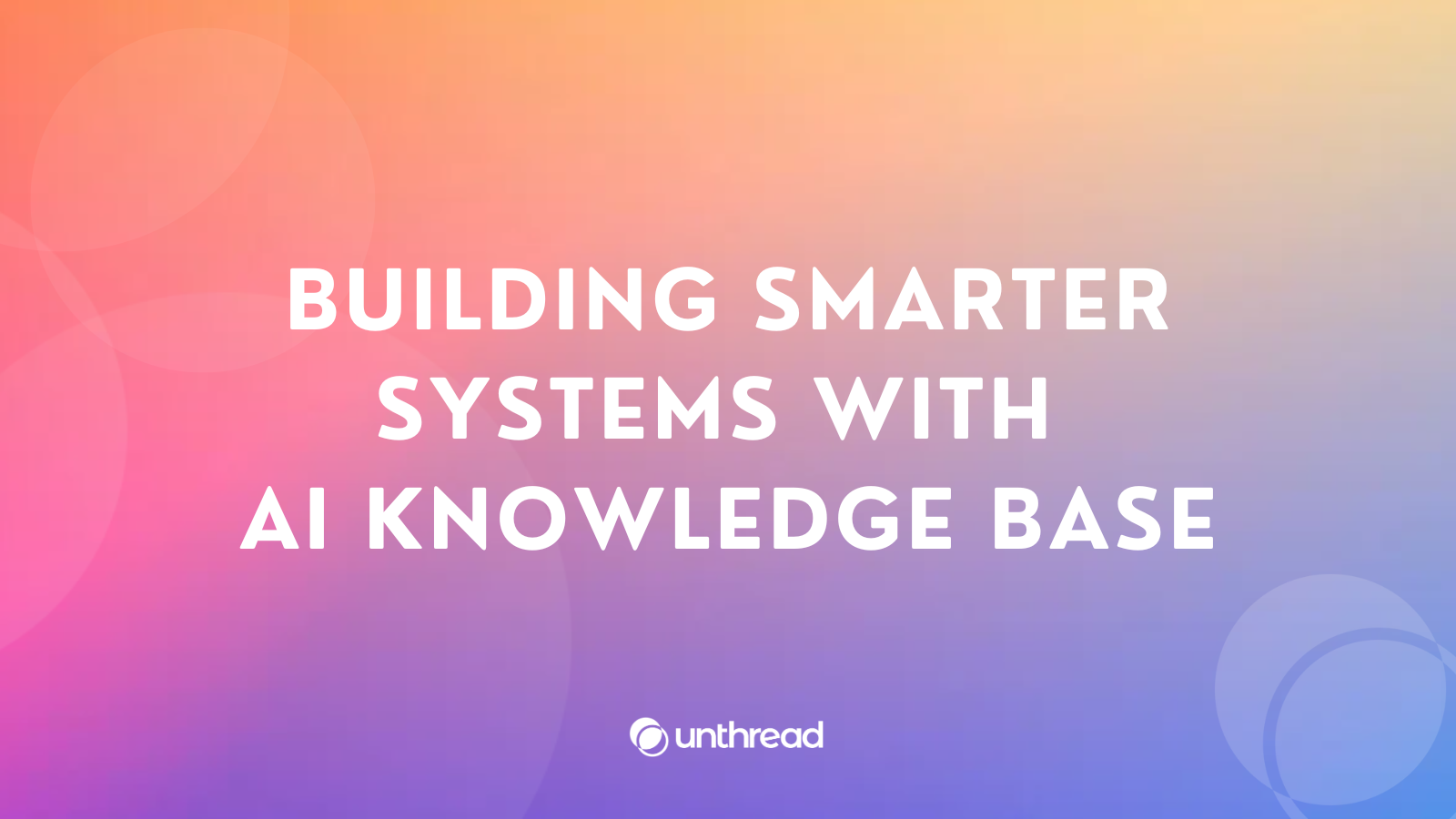Building Smarter Systems with AI Knowledge Base

Imagine an AI that doesn't just regurgitate information back to you, but truly understands the connections and interdependencies of complex systems. That's the promise of AI Knowledge Bases (AKBs). These aren't just libraries of information; they're structured repositories that capture and process the connections between them. This lets AI systems reason, learn, and make informed decisions, paving the way for a new generation of intelligent systems. In this article, we'll dive into the world of AI knowledge bases and explore how they're building a smarter future.
What is a Knowledge Base?
A knowledge base is a central hub of information used for knowledge sharing and management. This saves time in doing customer support calls and employee training sessions. This can also help individuals find the information they need quickly and easily.
There are two main types of knowledge bases:
- Internal knowledge base: This is designed for employees within a company and can contain information about company policies, procedures, or how to use specific software programs.
- External knowledge base: This is designed for customers or the general public and can contain information about how to use a product, answer FAQs, or troubleshoot problems.
What is an AI Knowledge Base?
An AI knowledge base is a knowledge base utilizing artificial intelligence (AI) which intelligently analyzes user interactions and suggests relevant information. Here some AI knowledge base platforms that you can use:
- Notion. Used to build databases, internal wikis and knowledge base.
- Guru. For sharing product details and updates.
- Confluence. For internal knowledge management and project documentation.
These can be connected to a ticketing support platform like Unthread to provide relevant AI responses to customer tickets and for quicker resolutions.
Types of AI-Powered Knowledge Base
The type of knowledge base depends on its usage. Let's dig into a few examples of how they can be structured.
Structured Knowledge Base
Stores info in a format (tables, databases) for easy access and processing by AI. Examples: FAQs, manuals, glossaries.
Semantic Knowledge Base
This type stores information and relationships between information, enabling AI to understand the meaning of the information and how it can be used. (e.g., WordNet, Google Knowledge Graph).
Machine Learning-Enhanced Knowledge Base
This type of knowledge base uses machine learning algorithms to learn from data to improve answers over time. This type of knowledge base is key for a rapidly changing product where the documentation may be incomplete or frequently changing.
How does an AI for Knowledge Base Work?
AI knowledge bases work by leveraging natural language processing (NLP) and machine learning (ML), enabling it to improve itself from having user interactions and data input. Constant interaction keeps it up-to-date.
Benefits of AI Knowledge Bases
Here are some of the advantages one can get with having an AI knowledge base:
- Faster, more accurate customer service with AI understanding natural language.
- Increased efficiency by automating FAQs and freeing up customer support representatives.
- 24/7 availability for anytime, anywhere customer self-service.
- Reduced workload on support teams with customer self-service options.
- Continuously updated knowledge base with AI learning from interactions.
- Improved customer service operations with data-driven insights from AI.
Applications of AI Knowledge Bases
Structured Knowledge Base:
- FAQs (Frequently asked questions)
- Troubleshooting guides to help users fix problems with a product or service.
- How-to articles
- User manuals
- Glossaries
Unstructured Knowledge Base:
- Customer emails and messages analysis to improve kb articles
- Sentiment analysis to understand customer feedback and identify areas for improvement.
- Support history analysis to identify trends and improve KB articles.
- Chat logs to improve the chatbot's responses.
AI-Generated Content:
- Drafting articles and FAQs
- Transcription of videos and audio recordings
- Chatbot responses generated to common customer queries, reducing the need for human intervention.
Conclusion
In conclusion, AI knowledge bases, or AKBs for short, are like giving AI a brain. They store not just facts, but also how those facts connect. This lets AI systems think for themselves, solve problems, and make better decisions. With AKBs, we're building a future with smarter AI that can help us in all sorts of ways.

